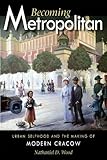Support H-Net | Buy Books Here | Help Support the NBN and NBN en Español on Patreon | Visit New Books Network en Español!
- African Studies
- African American Studies
- American Politics
- American Studies
- American South
- American West
- Asian American Studies
- Australian and New Zealand Studies
- British Studies
- Canadian Studies
- Caribbean Studies
- Central Asian Studies
- Chinese Studies
- East Asian Studies
- Eastern European Studies
- European Politics
- French Studies
- German Studies
- Iberian Studies
- India Studies
- Indian Ocean World
- Iranian Studies
- Irish Studies
- Israel Studies
- Italian Studies
- Japanese Studies
- Korean Studies
- Latino Studies
- Latin American Studies
- Mexican Studies
- Middle Eastern Studies
- Native American Studies
- Pacific Studies
- Polish Studies
- Russian and Eurasian Studies
- Southeast Asian Studies
- South Asian Studies
- Turkish Studies
- Ukrainian Studies
- Western European Studies
- World Affairs
- Animal Studies
- Anthropology
- Archaeology
- Business, Management, and Marketing
- Media
- Critical Theory
- Disability Studies
- Drugs, Addiction and Recovery
- Education
- Economics
- Finance
- Geography
- Gender Studies
- Genocide Studies
- Higher Education
- Human Rights
- Journalism
- Language
- Law
- LGBTQ+ Studies
- National Security
- Philanthropy
- Philosophy
- Policing, Incarceration, and Reform
- Political Science
- Politics & Polemics
- Public Policy
- Sex, Sexuality, and Sex Work
- Sociology
- Sound Studies
- Sports
- Urban Studies
- Big Ideas
- Celebration Studies
- Co-Authored
- Cover Story
- Historical Materialism
- History Ex Silo
- Interpretive Political and Social Science
- Invested Investor
- Landscape Architecture
- Late Antiquity
- Mormonism
- NBN Book of the Day
- NBN Seminar
- Postscript: Conversations on Politics and Political Science
- Practical History
- Preparing for Life After Grad School
- Psychology and Climate Change
- Syriac Studies
- The Chair: In The Room at the Fed
- New Books with Miranda Melcher

Jan 11, 2013
The Ukrainian West
Culture and the Fate of Empire in Soviet Lviv
Summary
During the Cold War few Westerners gave much thought to Western Ukraine, and its main city, Lviv. It was what happened in Moscow and St. Petersburg that really mattered, and so if one looked on a map one found city as Lvov, the Russian transliteration, rather than the Ukrainian that was native to the region. Consequently, beyond emigre circles the way in which Lviv became a center for an alternative way of looking at the world was largely ignored until the Soviet regime was falling apart.
William Risch's fascinating book The Ukrainian West: Culture and the Fate of Empire in Soviet Lviv (Harvard UP, 2011) explores how Soviet rule was imposed in Lviv and Western Ukraine, and how despite Soviet ambitions, Lviv acquired its own identity that affected not just locals indigenous to the region but also people who moved to the city after it came under Soviet rule at the end of World War II. Drawing heavily on oral interviews, Risch tells an intriguing story of the unintended consequences of Soviet rule, and the way in which Lviv became not just a city in the geographical west of the Soviet Union, but became a kind of outpost of a western perspective within the Soviet Union.
In an act of full disclosure, Risch's book has special interest to my own research has centered on that city during the period it was under Austrian rule. Further, my wife was one of Risch's many interview subjects. Be that as it may, if you are already familiar with Lviv, or still unfamiliar with its charms, I invite you to listen to my conversation with Risch about Lviv and his book.






































































































